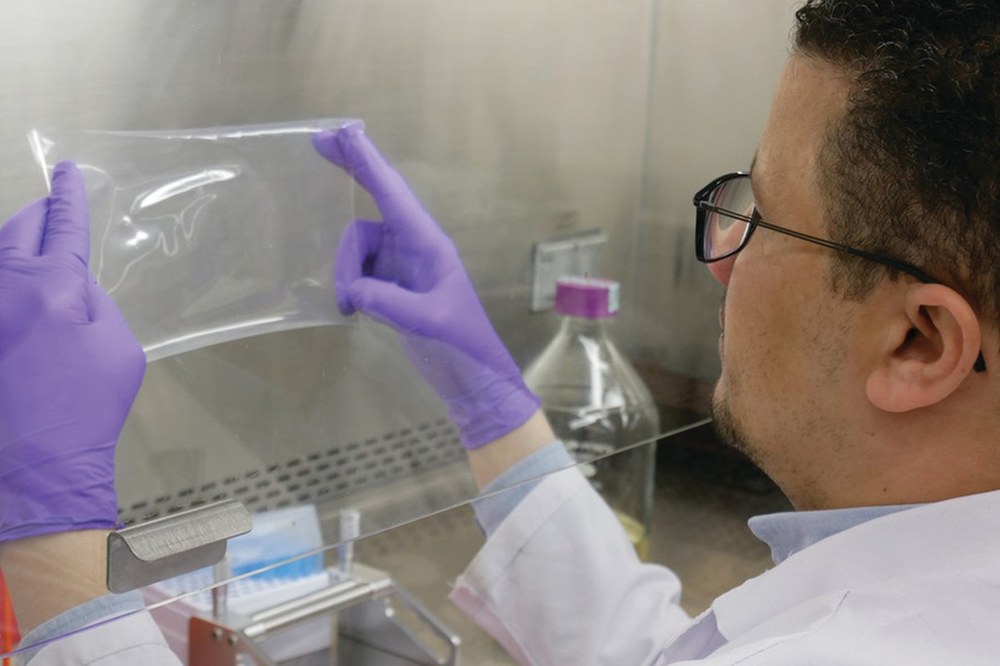Posted: October 19, 2020
A novel composite antimicrobial film could keep food safer longer.

Researcher Abdelrahim Hassan, a visiting scholar in the Department of Food Science when the research was conducted, examines the novel composite film. Photo by Penn State.
A novel composite film--created by bonding an antimicrobial layer to conventional, clear polyethylene plastic typically used to vacuum-package foods such as meat and fish--could help decrease foodborne illness outbreaks, according to researchers in the college.
The antimicrobial lining of the film is composed of a pullulan-based biopolymer produced from starch syrup during a fermentation process, which is already approved for use in foods. Pullulan, a water-soluble "polysaccharide," is essentially a chain of sugar, glycerin, and cellulose molecules linked together. To kill pathogens such as Salmonella, Listeria, and pathogenic E. coli, the researchers infused the pullulan with lauric arginate, made from naturally occurring substances and already approved for use in foods.
The pullulan film slows the release of the antimicrobial, disbursing it at a predictable rate to provide continuous bacteria-killing activity, explained researcher Catherine Cutter, professor of food science. She added that without being impregnated into the film, the antimicrobial would run off the surface of a food product, such as meat, or evaporate.
Development of the composite antimicrobial film is important because 76 million cases of foodborne illness occur each year in the United States alone, resulting in 300,000 hospitalizations and 5,000 deaths, according to the U.S. Centers for Disease Control and Prevention. In light of this problem and the commercial potential of this discovery, Penn State has applied for a provisional patent on the composite antimicrobial film.
The research was published in the International Journal of Food Microbiology.
--Jeff Mulhollem


